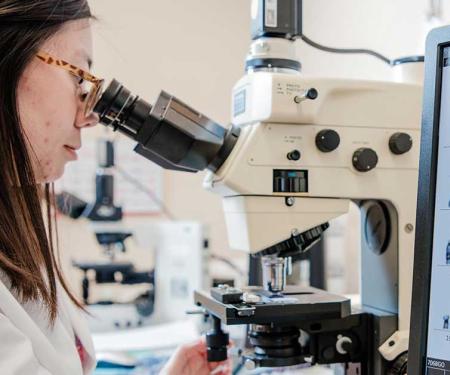Related Articles
00 / 00
-

A digital rendition of a glowing double helix, artistically representing DNA in shades of blue.
-

A photo of a Fox Chase doctor looking through a microscope, with a screen displaying chromosomes to their right.

